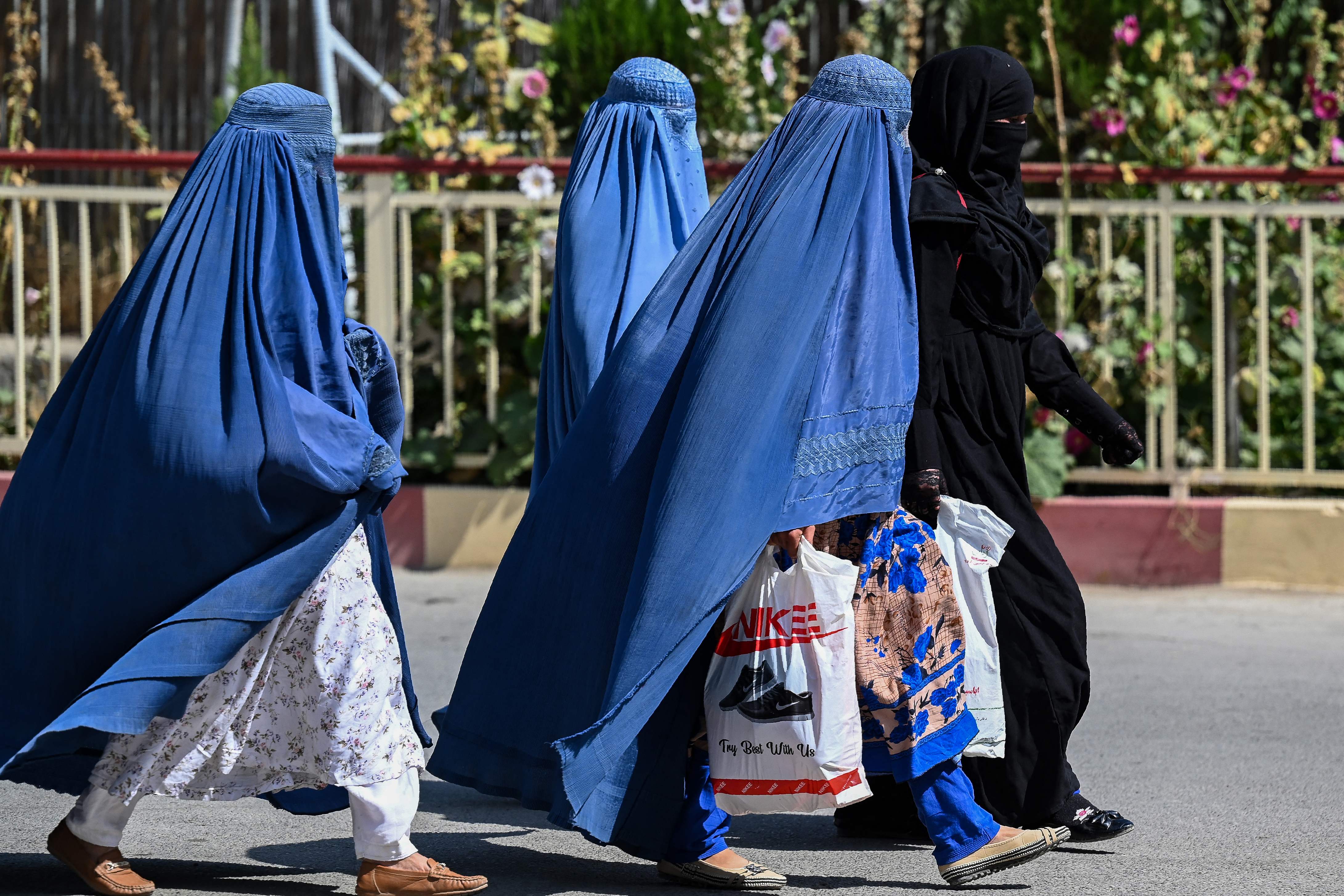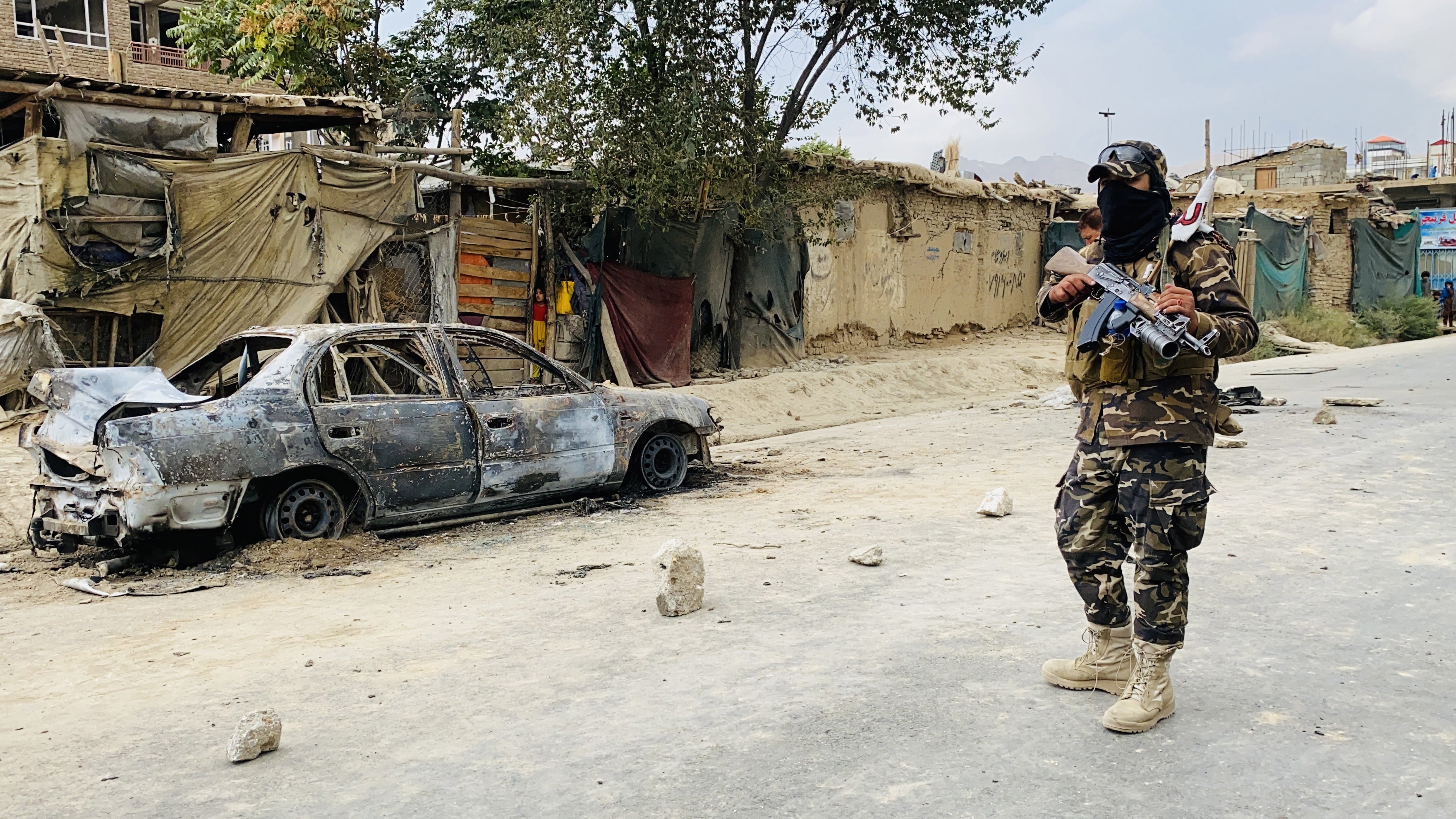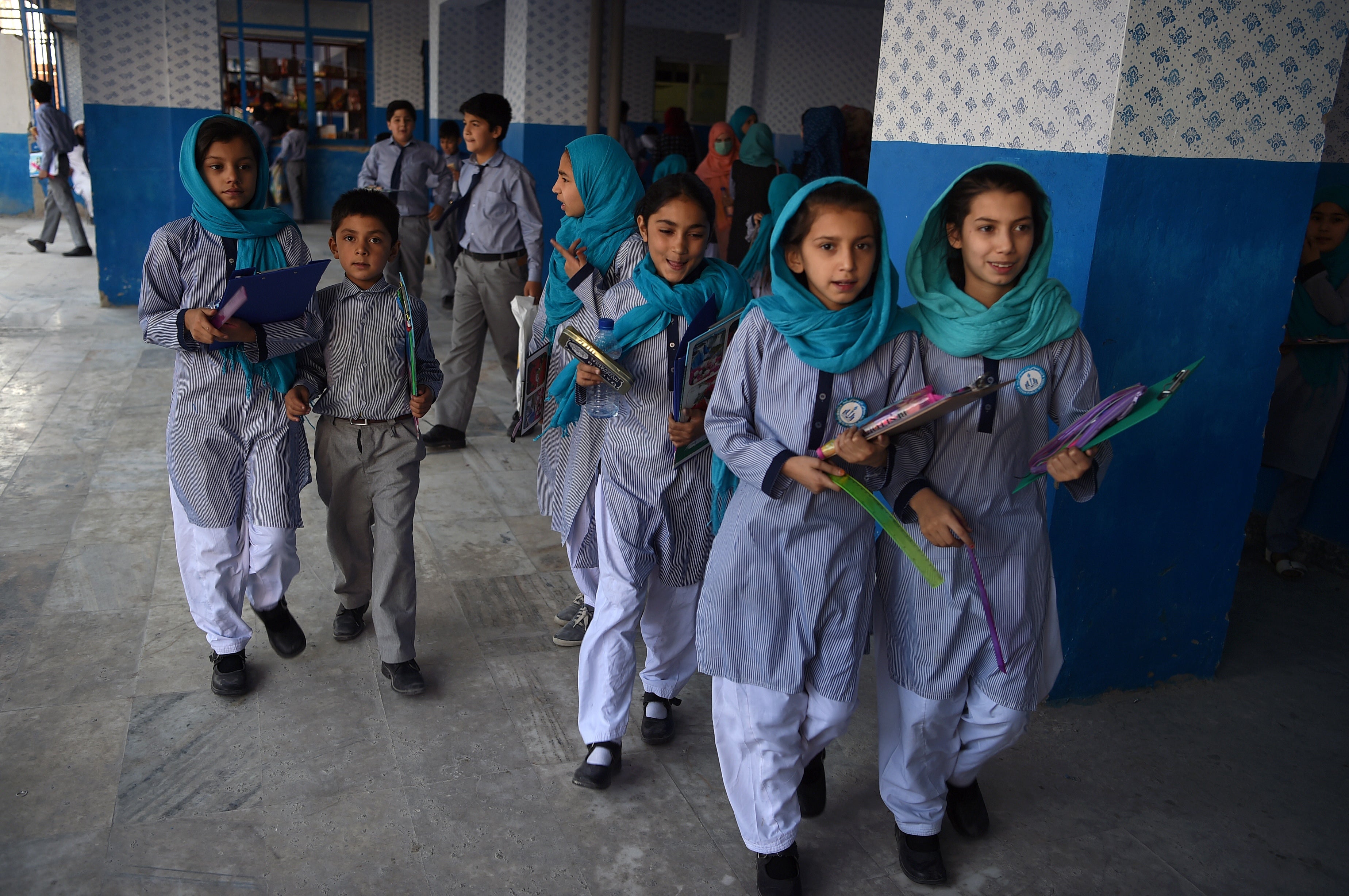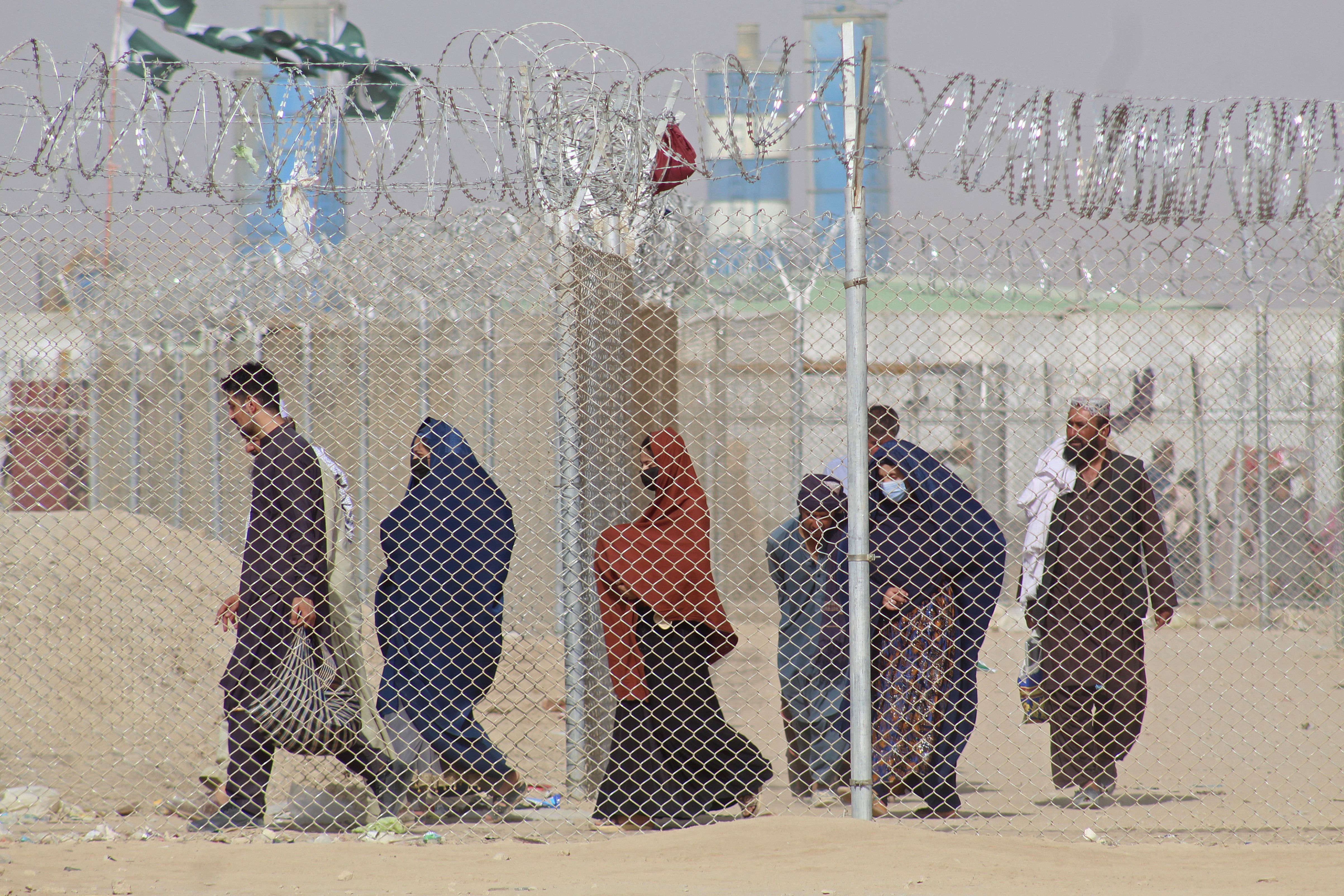After the withdrawal: Afghan women speak of being abandoned by the west to a dark future
The women who failed to secure safe passage out of Kabul before the deadline are now living in hiding and face even greater risk because of their association with the west, writes Bel Trew


Your support helps us to tell the story
From reproductive rights to climate change to Big Tech, The Independent is on the ground when the story is developing. Whether it's investigating the financials of Elon Musk's pro-Trump PAC or producing our latest documentary, 'The A Word', which shines a light on the American women fighting for reproductive rights, we know how important it is to parse out the facts from the messaging.
At such a critical moment in US history, we need reporters on the ground. Your donation allows us to keep sending journalists to speak to both sides of the story.
The Independent is trusted by Americans across the entire political spectrum. And unlike many other quality news outlets, we choose not to lock Americans out of our reporting and analysis with paywalls. We believe quality journalism should be available to everyone, paid for by those who can afford it.
Your support makes all the difference.When the deadline passed, and the last scrap of hope had gone, Sima* split up her family and went into hiding.
She is at triple risk of death. As a member of Afghanistan’s persecuted Hazara Shia community, and a female journalist whose husband worked for US pro-democracy programmes, she is sure to be on hit lists.
Despite weeks of lobbying by international groups, several gruelling trips to the airport, and narrowly avoiding being blown up in the Isis-K-claimed suicide bombing, the mother of three did not manage to secure safe passage out of Kabul in time.
So when the last US plane left before the 31 August withdrawal deadline, it marked not only the end of the 20-year military intervention in Afghanistan but the end of Sima’s hope of getting to safety.
“Today, my younger children were crying and watching the sky, waiting for an aeroplane to come that never would,” she says via an encrypted messaging app, adding that she knows of Hazara journalists like her who have already been reportedly disappeared by the Taliban after trying to escape.

“Now, we have lost all our hopes because all the countries have gone and we are alone here. It would be better to shut our mouths and wait for death to take us.”
In a different part of the city, Halima*, another veteran Afghan journalist and translator, is also in hiding. She says her pleas for emergency visas for her and her at-risk family have been met with a wall of silence from countries including the UK, despite the fact that during the last two decades she has worked with the British embassy and several prominent American news outlets. One of her relatives is a US green card holder, who happened to be visiting when the Taliban swept control of Kabul and is now stuck.
“[The west] never came to help us. They made our lives hell and then buried us in this hell forever,” says Halima. She describes how, on one of the seven trips to the airport to try and leave Afghanistan, her brother was beaten up by Taliban guards.
“For 20 years people have lobbied about women’s situation and rights in Afghanistan; they’ve talked about education, scholarships. For 20 years they [told us to] get involved. And now suddenly we are all sitting at home hiding. They left us behind, they abandoned us.”
‘Life has never been so meaningless’
In the 24 hours since the evacuation window closed, several women who are in contact with The Independent and were trying to leave the country have sent desperate messages.
Among them are journalists, translators, women’s rights activists, students and political figures. Some of them are particularly at risk because they are members of the minority Hazara community, or are from Panjshir province, which is the last pocket of anti-Taliban resistance in the country.
There is a chilling familiarity to all the messages: they left us behind, do not forget us, help us. Help us.
It could only be described as a humiliating exit as the west withdrew from Afghanistan, the theatre of America’s longest war, that took the lives of nearly a quarter of a million Afghans and over 2,900 American and British service personnel while costing some $2 trillion.
But for the Afghans left behind, particularly women, the situation is perilous.
In the last, furiously chaotic few weeks – which were marred by an Isis-K suicide bombing, killing at least 170 people, as well as rocket attacks and what many are saying was a botched US drone strike that killed civilians – the US and its allies managed to airlift more than 123,000 people from Kabul.
The UK succeeded in getting 15,000 people out, but foreign secretary Dominic Raab said a few hundred Britons also did not make it onto the planes.
US president Joe Biden called the airlift “an extraordinary success”, but his teams admitted leaving behind around 100 US nationals, along with tens of thousands who had helped with western operations during the war.
Among them are the most vulnerable: Afghan women, who make up around half of the population of 39 million.
The Taliban promised that, after the international rescue mission ended, they would guarantee safe passage out of the country for foreign nationals and Afghans with relevant travel documents. But even the UK Foreign Office minister for the region, James Cleverly, told the BBC he was “sceptical” about these assurances as there is a widening gap between the Taliban’s public persona and the reports of massacres of members of vulnerable minorities like the Hazara, as well as door-to-door raids and disappearances, which the Taliban deny.
And so there is also mistrust about the Taliban’s promises to respect women’s rights for those who do stay. The Taliban have sought to portray themselves as more moderate than they were in the regime of the 1990s, when they imposed a strict form of Islamic Sharia law. Back then, women were largely confined to their homes and barred from going to school or university.

Life has improved considerably for women in Afghanistan over the last 20 years, with greater inclusivity at all levels of society along with access to education, and so the United Nations has sounded the alarm. Pramila Patten, the acting head of UN Women, warned on Tuesday that the hard-won gains for which Afghan women’s rights activists have fought “cannot be reversed or rolled back”.
“Urgent action is needed now to ensure the full participation of women in the public and political life of Afghanistan,” she said, adding that the Taliban must ensure that women are protected from gender-based threats and attacks.
Amid fears of a darker future, many of the most vulnerable women are trying to leave.
In the last days, we have been fighting with contacts in the US military, the White House, and lobbying senators to get Afghan women on the list. But they just wanted Americans
But the process to get the women out has been fraught with difficulty, according to rights organisations working on the evacuation. Even securing visas is hard, says Kiran Nazish, a founder of the Coalition For Women In Journalism, which has been trying to assist hundreds of the most high-risk women.
“There is a lack of [foreign] government responsibility,” she tells The Independent in despair.
She says several of the buses the group had organised were turned back, some buses were even fired on, and three of the planes they had tried to organise left half-empty because they couldn’t get the women past the checkpoints.
“The reason we faced this challenge of getting people past the gates [of the airport] is because they were still asking for visas. In the last days, we have been fighting with contacts in the US military, the White House, and lobbying senators to get Afghan women on the list. But they just wanted Americans.”
The coalition is currently working on 300 cases of women they were unable to evacuate before the 31 August deadline, 100 of whom are on hit lists or high-risk lists and are being moved between different safe houses. Nazish’s teams are scrambling to find alternative routes out, including potentially transiting through Pakistan, where again, the women would need visas.

“I want solid steps by the government to get people out. In this entire evacuation effort, no one has had the women as a priority, despite the fact they are most at risk.
“That is excruciating for non-profits and organisations on the ground,” says Nazish.
Tainted by association
Sunil Varghesse, policy director of the US-based International Refugee Assistance Project (IRAP), which has also worked day and night to try to get hundreds of Afghan men and women out of the country, says that anyone who has tried and failed to be evacuated will now be at even greater risk.
“For those who [were] waiting outside of the airport, if the Taliban didn’t know they were affiliated to the Americans or the west, they do now, because they were outside the airport,” he told The Independent before the 31 August deadline passed, warning: “If we don’t get them out, the evacuation will turn into something much worse.”
Complications on the ground make it near impossible for some to leave. One female student tells The Independent that her family haven’t even managed to make it to Kabul and are now stuck in a province far from the capital. This means she would have to navigate treacherous checkpoints manned by Taliban fighters and their supporters, and risk potential Isis attacks, before even getting to the capital to start the process of trying to leave.
Another student, who is from Panjshir but in Kabul and so at risk, says that in the chaos, family members are still trying to renew their expired passports, and so cannot even begin the visa application.
“We are a major target. The only hope we have left is to pray to God,” she says.
‘Kabul is full of terror now’
Samya*, another female journalist in her twenties, whose journalism work was supporting her entire family after her father passed away, says a recent rocket attack in Kabul hit next to her home, bringing home the reality of the future ahead.
“If we do stay, we know the Taliban hasn’t changed. Women cannot leave their homes, they cannot go to work – please help all of us,’ she says.
In the last few days, whenever an aeroplane was flying overhead, the children were telling each other that the US is here and they will rescue us, and now they just cry
The UK is apparently in talks with the Taliban over how to secure safe passage for those left behind. Mr Biden said he had tasked secretary of state Antony Blinken with coordinating with international partners to hold the Taliban to their promise of getting out Americans, and others who want to leave, in the days ahead.
But that hasn’t assuaged fears on the ground. Sima’s family, spread across different provinces, claim they have already received reports that ethnic Hazara journalists have been rounded up by the Taliban and disappeared after holding a meeting about how to escape. The Independent could not verify that incident, but Amnesty International has already reported the massacre of nine Hazara men by the Taliban in July.
“In the last few days, whenever an aeroplane was flying overhead, the children were telling each other that the US is here and they will rescue us, and now they just cry,” says Sima.
“Kabul is full of terror now. We have been left behind. We have lost our hope.”
*Name changed for safety reasons
Join our commenting forum
Join thought-provoking conversations, follow other Independent readers and see their replies
Comments